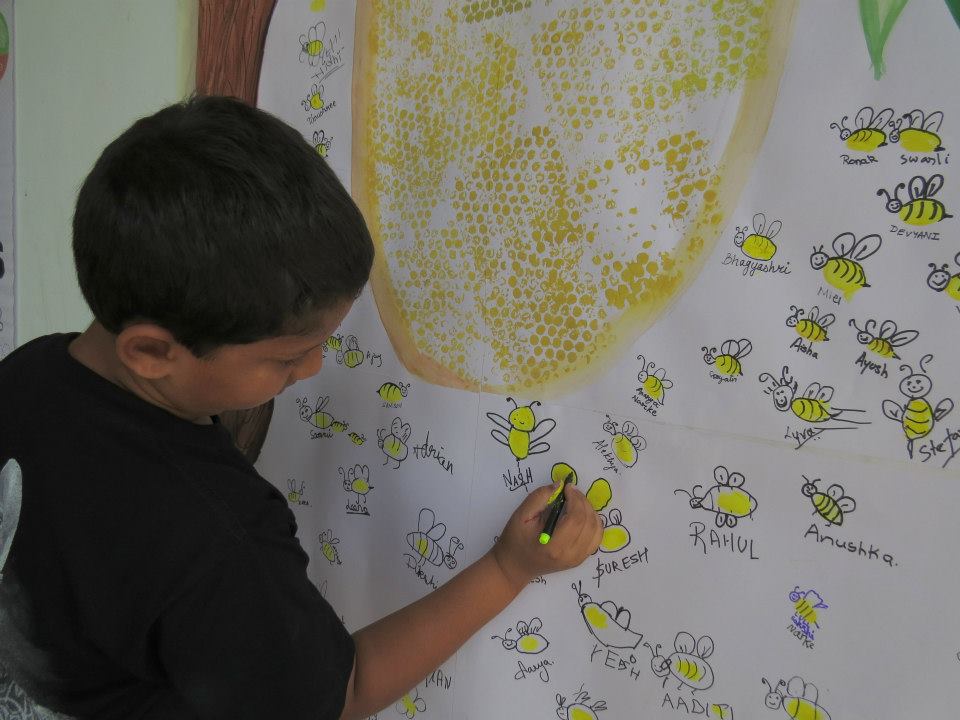Buzzing for the BEES
Sunday, 24th
February, was celebrated at National Bee Day, with an interesting programme held
at Maharashtra Nature Park, Mumbai. Well, while most people may not be
particularly fond by bees and would in fact like to keep a safe distance from
them, their importance to us human beings should definitely not be
underestimated. An often quoted saying, attributed to Albert Einstein, declares:
"If the bee disappeared off the
surface of the globe, then man would only have four years of life left. No more
bees, no more pollination, no more plants, no more animals, no more man." Although
it is not certain if these are indeed the words of Einstein (he was a physicist
not an apiologist), it is a warning we need to heed.
Bees are among
the most important pollinators and their absence would cause the productivity
of agriculture to fall dramatically. According to a U.N. report published in
2011, of the 100 crop species that provide 90 per cent of the world’s food,
over 70 are pollinated by bees. Unfortunately, bee populations across the world
are facing a drastic decline. In U.K. the present bee population is half of
what it was 25 years ago. In India,
the population of the native Indian honey bee, Apis
dorsata, has declined by
more than 20 percent in the last 10 years.
Several factors are responsible for this unfortunate decline of bee populations, chief among them being the widespread use of chemical pesticides and herbicides, habitat loss and climate change. Air pollution, which interferes with the ability of the bees to find flowering plants, is another factor to blame. Some research studies have also been suggesting that the recent increase in atmospheric electromagnetic radiation as a result of growing usage of cell phones and wireless communication towers probably interferes with the bees’ ability to navigate.













_in_nest_in_Kolkata_I_IMG_2869.jpg)
Comments